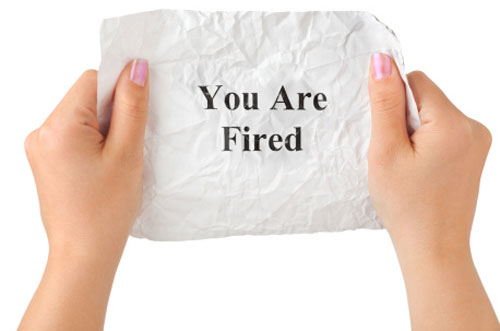
 The OHS laws across Canada bar employers from disciplining workers for exercising their safety rights, such as by refusing unsafe work or contacting the government about unsafe work conditions. And in Ontario, reprisals are getting more attention than ever since the passing of Bill 160, which is intended to make it easier for workers to bring reprisal claims. In addition, under the Canadian Criminal Code, it’s illegal to take or threaten adverse action—that is, fire, discipline, suspend, penalize, intimidate or coerce—against a worker for “whistleblowing,” which includes giving information to a “person whose duties include the enforcement of federal or provincial law.” So reporting an OHS violation to the Ministry of Labour is protected by criminal law. As a result, disciplining workers in retaliation for blowing the whistle on the company or exercising their safety rights can land the company in hot water. A BC employer learned this lesson the hard way.
The OHS laws across Canada bar employers from disciplining workers for exercising their safety rights, such as by refusing unsafe work or contacting the government about unsafe work conditions. And in Ontario, reprisals are getting more attention than ever since the passing of Bill 160, which is intended to make it easier for workers to bring reprisal claims. In addition, under the Canadian Criminal Code, it’s illegal to take or threaten adverse action—that is, fire, discipline, suspend, penalize, intimidate or coerce—against a worker for “whistleblowing,” which includes giving information to a “person whose duties include the enforcement of federal or provincial law.” So reporting an OHS violation to the Ministry of Labour is protected by criminal law. As a result, disciplining workers in retaliation for blowing the whistle on the company or exercising their safety rights can land the company in hot water. A BC employer learned this lesson the hard way.
BC Employer Retaliated Against Worker for Requesting PPE
An employer in BC required its paramedics to wear a respirator for which they had to be clean-shaven. A worker asked for an accommodation, claiming that he had a skin condition that was irritated by frequent shaving. Instead of letting him use a different respirator, the employer put him on short-term leave and later suspended him for making a “frivolous” accommodation request. The WCAT concluded that the employer had disciplined the worker for exercising a right under the OHS law to appropriate PPE, which the employer was required to provide. And a BC court agreed [Emergency and Health Services Commission v. Wheatley].
SOLUTION: Implement a Non-Retaliation Policy
Given that the consequences of retaliating against a worker can include hefty fines and even jail sentences, it’s important that everyone in the company understand that reprisals are forbidden. One of the most important ways you can manage your company’s liability risks is to establish a clearly worded company policy that encourages the exercising of safety rights and reporting of safety concerns and reassures workers that you won’t retaliate against them for doing so. Your non-retaliation policy should:
- State your company’s commitment to complying with the law and maintaining high standards of integrity;
- Remind workers that they’re not only allowed but also required to report violations of OHS, environmental and other laws to a supervisor or company official;
- Require supervisors and managers to keep an “open-door” policy and encourage workers to come forward;
- Require supervisors and managers who receive complaints to investigate them and refer them to the appropriate person or body if they appear valid;
- Offer to maintain the anonymity of workers who complain but encourage them to provide their names for the purpose of follow-up investigation; and
- State that anybody who violates the non-retaliation policy will be disciplined.
MODEL NON-RETALIATION POLICY: Download a Model Non-Retaliation Policy that you can adapt for use in your workplace.
Workers are also usually protected from discipline for exercising their rights under employment standards laws and for reporting violations of environmental laws. For example, a worker for a chemical waste recycling and disposal company was fired after he disclosed concerns he had about the company’s disposal of its chemical waste and about accidental spills to the MOE, a local environmental group and the media. He sued the company under the whistleblower protections of ON’s EPA. The court ruled that the worker’s termination was “precisely the kind of employer reaction” from which the law was designed to protect workers [Marshall v. Varnicolor Chemical Ltd.].
SHOW YOUR LAWYER
Emergency and Health Services Commission v. Wheatley, [2010] BCSC 1769 (CanLII), Dec. 9, 2010
Marshall v. Varnicolor Chemical Ltd., [1991] OLRB Rep. May 711, File No. 2423-90-EP, May 30, 1991


Leave A Comment